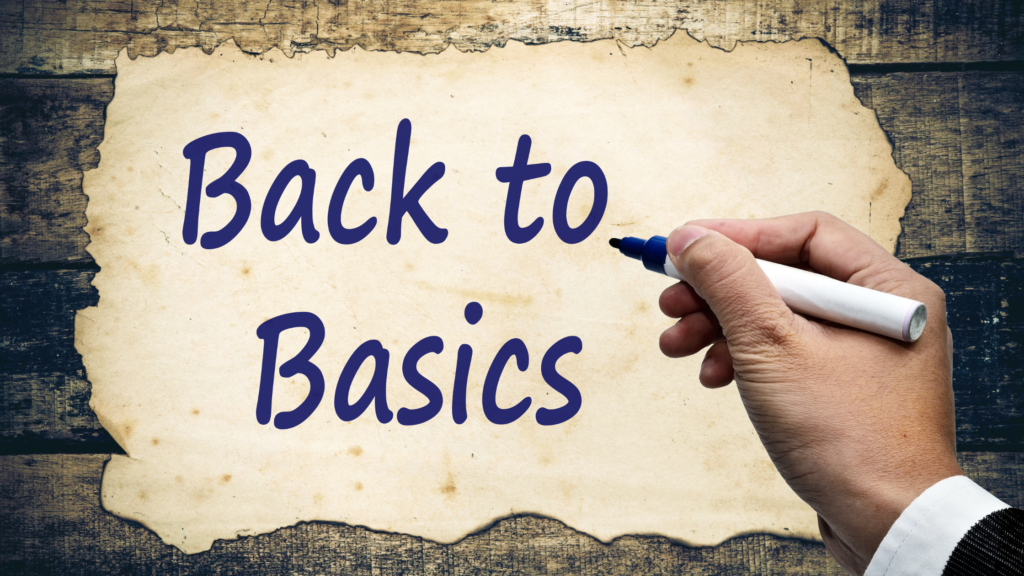
You might be wondering, how much time do I need to invest in learning SEO before you can take on a small, meaningful project?
This blog post will provide a detailed guide to help you understand the time commitment required and offer a step-by-step approach to mastering SEO.
Let’s dive in.
Table of Contents
ToggleUnderstanding SEO Basics

Before diving into the time do I need to invest in learning SEO, it’s crucial to understand the basics.
This foundational knowledge will set the stage for your journey into the world of search engine optimization.
What is SEO?
SEO stands for Search Engine Optimization.
It’s the practice of optimizing websites to rank higher in search engine results pages (SERPs).
The goal? Increase organic (non-paid) traffic to your site.
High search rankings lead to more visibility.
More visibility means more traffic.
And more traffic can translate into higher revenue.
Essentially…
SEO is about making your website attractive to search engines like Google, so they rank your content higher than your competitors.
Core Concepts of SEO

Understanding the core concepts of SEO is like learning the rules of the game.
Here are the key elements you need to know:
Keywords: Keywords are the words and phrases that potential customers type into search engines. Identifying and using relevant keywords effectively helps your content show up in search results. Think of keywords as the bridge between what people are searching for and the content you provide.
On-Page SEO: This involves optimizing individual web pages to rank higher and earn more relevant traffic. Key aspects include optimizing meta tags, headers, URL structures, and ensuring content is high-quality and relevant to the search queries.
Off-Page SEO: These are activities performed outside your website to improve its position in search rankings. The most common example is link building, which is the process of getting other reputable sites to link back to your content. These backlinks act as votes of confidence for your site.
Technical SEO: Technical SEO ensures your website meets the technical requirements of search engines. This includes optimizing site speed, ensuring mobile-friendliness, creating an XML sitemap, and using HTTPS. Think of technical SEO as the foundation of a house – it’s not always visible, but it’s crucial for stability and performance.
Understanding these basics will give you a solid foundation as you start your SEO learning journey.
In the next sections, we’ll break down the time investment required and how you can efficiently learn and apply SEO techniques to start taking on meaningful projects.
Time Investment for Learning SEO
Now that you understand the basics, let’s dive into the time you need to invest in learning SEO.
Breaking it down into phases will help you manage your learning process efficiently.
Initial Learning Phase: 1-2 Months
Daily Commitment: 1-2 hours per day
Key Activities:
Reading SEO Blogs: Start by immersing yourself in the world of SEO through reputable blogs like Moz, Backlinko, and Search Engine Journal.
These sources provide up-to-date information, tips, and industry news that are crucial for beginners.
Watching Tutorials: Platforms like YouTube and Udemy offer a wealth of beginner tutorials.
These videos can help you understand the fundamentals of SEO in an easy-to-digest format.
Understanding Tools: Familiarize yourself with basic SEO tools like Google Analytics, Google Search Console, and keyword research tools.
These tools are essential for tracking and analyzing your SEO efforts.
Hands-On Practice Phase: 2-3 Months
Daily Commitment: 1-2 hours per day
Key Activities:
Keyword Research: Practice finding and selecting keywords for different niches.
This involves understanding search volume, competition, and relevance to your content.
On-Page Optimization: Work on optimizing content, meta tags, and headers.
This practice will help you learn how to make your pages more search engine friendly.
Content Creation: Start writing SEO-friendly blog posts and articles. Focus on creating high-quality content that provides value to your audience while incorporating the keywords you’ve researched.
Technical SEO: Implement basic technical SEO practices like improving site speed and ensuring your website is mobile-friendly.
This phase will teach you how to enhance the technical aspects of your site to improve search engine rankings.
Advanced Learning Phase: 3-6 Months
Daily Commitment: 1-2 hours per day
Key Activities:
Link Building: Learn and practice various link-building strategies.
Building high-quality backlinks is crucial for improving your site’s authority and ranking.
Analytics: Deep dive into analyzing traffic data and refining strategies.
Use tools like Google Analytics to understand your site’s performance and identify areas for improvement.
Case Studies: Study successful SEO case studies to understand what works.
Analyzing real-world examples will give you insights into effective SEO strategies and techniques.
Networking: Join SEO communities and forums to exchange knowledge and stay updated with the latest trends.
Networking with other SEO professionals can provide valuable advice and support as you continue to learn and grow.
By following this structured learning approach, you can realistically start taking on small, meaningful SEO projects within 6-9 months.
Each phase builds on the previous one, ensuring you develop a comprehensive understanding of SEO.
Practical Experience
Once you’ve spent time learning the basics and practicing SEO techniques, it’s time to gain practical experience.
This hands-on approach will solidify your knowledge and build your confidence to take on real projects.
Start with Personal Projects
Create a Blog: One of the best ways to apply what you’ve learned is by starting a personal blog.
Choose a topic you’re passionate about and begin creating content.
Use this platform to practice keyword research, on-page optimization, and content creation.
By regularly updating your blog, you’ll see firsthand how your SEO efforts impact your search rankings and traffic.
Optimize a Website: Another excellent way to gain experience is by optimizing a friend’s or family member’s website.
This provides a real-world scenario where you can apply your SEO skills.
Work on improving site speed, optimizing meta tags, creating high-quality content, and building backlinks.
Document your process and results to learn what strategies are most effective.
Take On Small Projects
Freelancing Platforms: Once you’re comfortable with your personal projects, start looking for small SEO gigs on freelancing platforms like Upwork or Fiverr.
These platforms are great for finding clients who need SEO services on a budget.
Initially, take on smaller projects to build your portfolio and gain testimonials.
Local Businesses: Offer your services to local businesses at a lower fee to gain experience.
Small businesses often need SEO help but may not have the budget for a large agency.
This is a win-win situation where you get real-world experience and the business benefits from improved online visibility.
Reach out to local shops, cafes, or startups and offer to help with their SEO efforts.
Gaining practical experience is a crucial step in your SEO learning journey.
By starting with personal projects and gradually taking on small client work, you’ll build the skills and confidence needed to handle more significant projects.
This hands-on experience will not only enhance your understanding of SEO but also make you a more attractive candidate for future opportunities.
Ongoing Learning and Adaptation
SEO is not a one-time effort but an ongoing process that requires continuous learning and adaptation.
As search engines evolve and new trends emerge, staying updated and acquiring advanced skills will ensure your SEO strategies remain effective.
Staying Updated
SEO is Dynamic: The world of SEO is constantly changing.
Search engines like Google frequently update their algorithms to improve the quality of search results.
These updates can impact your website’s rankings…
So it’s crucial to stay informed about the latest changes and trends.
Regular Reading: To keep up with these changes, regularly read SEO news and updates from trusted sources.
Websites like Moz, Backlinko, and Search Engine Journal offer up-to-date information, expert insights, and practical advice.
Subscribing to SEO newsletters, following industry experts on social media…
Participating in SEO forums can also help you stay informed.
Advanced Skills
As you become more comfortable with the basics and intermediate aspects of SEO…
Developing advanced skills will further enhance your capabilities and open up new opportunities.
Content Marketing: Creating and promoting high-quality content is a key component of effective SEO.
Learn how to develop content that resonates with your audience, incorporates relevant keywords, and provides value.
Content marketing also involves understanding how to distribute and promote your content to reach a broader audience.
Data Analysis: Being proficient in data analysis is crucial for making informed decisions.
Learn how to use tools like Google Analytics to track and analyze traffic data, understand user behavior, and measure the effectiveness of your SEO efforts.
This skill will enable you to identify trends, adjust strategies, and improve performance.
Programming Basics: Understanding the basics of programming languages like HTML, CSS, and JavaScript can be highly beneficial.
These skills allow you to make technical adjustments to your website, optimize it for search engines, and improve user experience.
While you don’t need to become a full-fledged programmer, having a foundational knowledge can make a significant difference in your SEO work.
The journey to mastering SEO is ongoing and requires a commitment to continuous learning and adaptation.
By staying updated with the latest SEO trends and acquiring advanced skills in content marketing, data analysis, and programming…
You can ensure your strategies remain effective and competitive.
Conclusion
In conclusion, how much time do I need to invest in learning SEO? learning SEO is a worthwhile investment, but it requires time and dedication.
Realistically, you can start taking on small, meaningful projects after 6-9 months of consistent learning and practice.
Begin with the basics, move to hands-on practice, and continuously update your knowledge to stay ahead in this dynamic field.
By following this guide and dedicating a few hours each day, you’ll be well on your way to mastering SEO and turning it into a profitable skill.
If you have any further questions or need personalized advice, feel free to reach out.
Happy learning!
